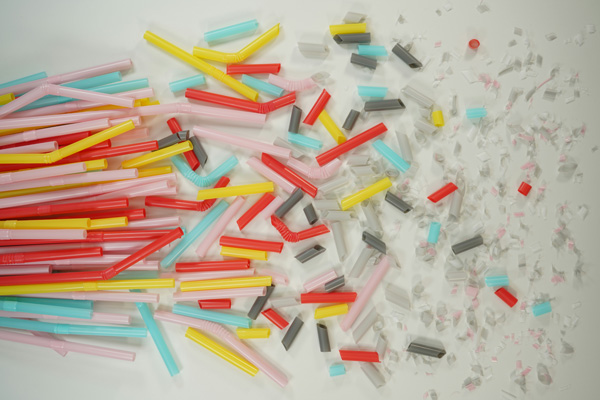Scientists from University of California-San Diego developed biodegradable plastic

[Image of microplastics, Credit to Unsplash]
On March 12th, scientists from the University of California-San Diego and Algenesis developed a new type of plastic that biodegrades in under 7 months, even in the form of microplastics.
Their newly developed plastic was derived from biological sources like algae, which have the capability to completely biodegrade in a matter of months.
The findings of the research, conducted by the University of California-San Diego and Algenesis, a materials science company, were published in Nature.
Microplastics are defined as indestructible plastic pieces smaller than five millimeters.
Since they persist in the environment for hundreds or even thousands of years, the development of biodegradable plastic has been necessary.
Until now, plastics were made of petroleum-based polymers with chemical bonds that are not easily broken down by microorganisms.
The newly developed plastic, dubbed TPU-FC1, however, contains polyurethane, which is composed of ester and urethane linkages, which accelerates a reaction where water splits the bond.
Especially, many microbes in the environment equipped with enzymes engage in this reaction, which breaks down the plastic into its constituent parts, which microbes then consume.
Upon testing the biodegradability of TPU-FC1, researchers found that nearly 70% of the TPU-FC1 microplastics had disappeared after 90 days in the compost.
Only 3% of the algae plastic remained- with the rest being completely digested by microbes, by 200 days.
Furthermore, scientists also measured the respiration of the compost: how much CO2 was produced by the microbes as they consumed the plastic.
As a result, scientists found that the microbes were breaking the plastic down as well as mineralizing it, converting the carbon in the plastic into CO2.
Microplastics formed by conventional plastic showed no CO2 evolution over the 200-day experiment, yet TPU- FC1 microplastics displayed significant biodegradation, reaching 76% CO2 evolution at the 200-day time point.
This confirms that newly developed plastic has the capability to convert the carbon from the microplastics into CO2, completing the carbon cycle.
Stephen Mayfield, a co-author of the study, UCSD School of Biological Sciences Professor, and co-founder of Algenesis, said “This material is the first plastic demonstrated to not create microplastics as we use it,”
He further mentioned, “This is more than just a sustainable solution for the end-of-product life cycle and our crowded landfills. This is plastic that is not going to make us sick.”
The researchers didn’t stop at microplastics - they also made prototype products out of TPU-FCI, including a phone case and some plastic-coated fabric.
While this newly developed plastic is a promising solution, it is not a complete solution.
It still requires a multi-pronged approach, including reducing our reliance on plastics, improving recycling infrastructure, and utilizing eco-friendly materials when establishing infrastructure.
However, with further research and development, materials such as TPU-FC1 could act as a crucial tool in eradicating the formation of microplastics and leading us toward a more sustainable plastic future.
Burkart expressed his stance by stating, “When we started this work, we were told it was impossible. Now we see a different reality. There’s a lot of work to be done, but we want to give people hope. It is possible.”
In a world pervasive of plastic waste, that’s certainly encouraging news.

- Yunji Heo / Grade 11
- Gyeonggi Academy of Foreign Languages

![THE HERALD STUDENT REPORTERS [US]](/assets/images/logo_student_us.png)
![THE HERALD STUDENT REPORTERS [Canada]](/assets/images/logo_student_ca.png)
